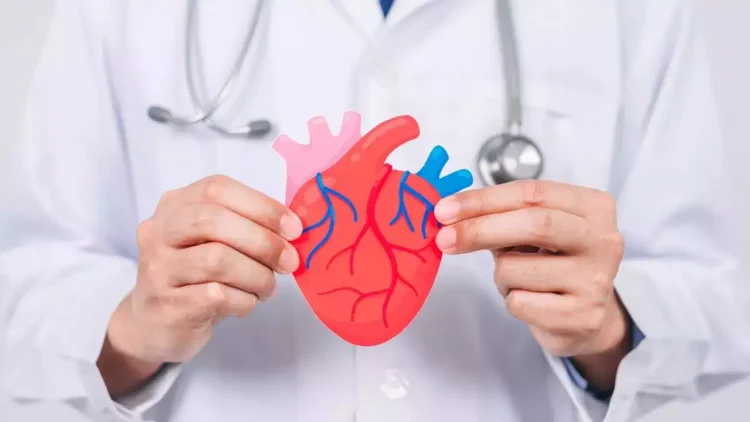Heart Disease Symptoms: Awakening to This Sign May Alert Those With Heart Problems
Heart disease is becoming more common, with a particular increase in young individuals and those under 50. According to the World Health Organization (WHO), around 18 million people die from cardiovascular illnesses each year. It’s critical that you take the appropriate actions to maintain heart health. Identifying the disease’s early signs is one of them.

Heart disease does not strike a person suddenly. It takes months or perhaps years for it to develop. The illness also begins to manifest symptoms as it progresses. Early detection of these symptoms may aid in diagnosis, allowing you to get the necessary care prior to a serious health event like a heart attack, cardiac arrest, or anything similar.
According to a research that was published in the journal Circulation Research, heart disease patients had symptoms as soon as they woke up.
An erratic heartbeat is described as a cardiac arrhythmia by the Mayo Clinic. It occurs when malfunctions occur in the electrical impulses that instruct the heart to beat. Too rapid or too sluggish heartbeats are possible. Alterations in the heartbeat’s rhythm are also possible. Usually, this sensation is similar to a racing or fluttering heartbeat.
Certain cardiac rhythms pose little threat to your life, while others may be dangerous or a sign of more severe medical issues. Heart arrhythmias may be treated with medications, devices like pacemakers, procedures, or surgery. These therapeutic approaches all aid in reducing or managing the erratic heartbeats.
Heart arrhythmia symptoms:
Here are a few examples of typical cardiac arrhythmia symptoms:
- Fluttering, pounding or racing feeling in the chest
- Fast heartbeat
- Slow heartbeat
- Chest pain
- Shortness of breath
- Anxiety
- Feeling very tired
- Lightheadedness or dizziness
- Sweating
- Fainting or almost fainting.
Heart arrhythmias may be a sign of more severe conditions such cardiomyopathy, heart failure, heart attack, and coronary heart disease. It is crucial that you be checked out if you often notice any of the aforementioned symptoms when you wake up.
The research was financed by the British Heart Foundation (BHF), whose associate medical director, Professor James Leiper, said that ventricular arrhythmias may occur at any moment and that, if addressed, they can result in death, rapid cardiac arrest, and loss of consciousness. In order to take preventative measures against cardiac arrhythmias, it is imperative that we keep looking into their causes.
Here are some other typical heart disease signs and symptoms.
One of the most typical symptoms is chest discomfort or pain. It might feel like discomfort, fullness, squeezing, or pressure in the left or center area of the chest.
Breathlessness: The inability to breathe, particularly while exercising or even just relaxing.
Fatigue: The state of being too exhausted or feeble, especially in the absence of physically demanding tasks.
Dizziness or Lightheadedness: Lightheadedness or dizziness may indicate insufficient blood supply to the brain as a result of cardiac disease.
Swelling: Heart disease may be indicated by swelling in the legs, ankles, feet, or belly.
Cold Sweats: Excessive sweating, particularly in the cold, may indicate a cardiac condition.
High Blood Pressure: One of the main risk factors for heart disease is hypertension.







